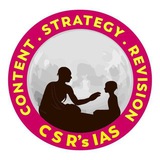☑️A potential Mains Q. for Ethics / GS 4
Q) Differentiate between “emotional intelligence” and “emotional manipulation”. Why is this distinction critical in public service?
#UpscMains
Q) Differentiate between “emotional intelligence” and “emotional manipulation”. Why is this distinction critical in public service?
#UpscMains
☑️Introduction:
Emotional Intelligence (EI) refers to the ability to recognize, understand, and manage one’s own emotions and those of others. In contrast, emotional manipulation involves the exploitation of others’ emotions for self-serving purposes, often without regard to ethical considerations.
👉Importance of the Distinction in Public Service:
1.Integrity and Trust:
•Public servants must use emotional intelligence to build public confidence, not manipulate citizens for personal or political gain.
2.Ethical Leadership:
•Leaders with EI inspire and empower. Manipulators may achieve short-term results but undermine long-term institutional credibility.
3.Citizen-Centric Governance:
•Emotional intelligence enables empathetic policies, whereas manipulation leads to populist or divisive actions.
4.Conflict Resolution:
•EI facilitates mediation and consensus, while manipulation escalates conflict for gain.
5.Moral Compass in Decision-Making:
•A public servant with EI balances logic with compassion, while manipulation often ignores the public good.
👉Examples of Emotional Intelligence in Public Service:
1. Kiran Bedi (IPS Officer – Tihar Jail Reforms):
She used emotional intelligence to understand the needs and psychology of inmates, initiating reformative steps like Vipassana meditation and literacy programs, rather than using force or coercion.
2.Public health campaigns:
Civil servants running COVID-19 awareness drives in rural areas used culturally sensitive messaging and community mobilizers rather than fear tactics—an example of applying emotional intelligence to public outreach.
👉Examples of Emotional Manipulation in Public Service:
1. Favor-seeking behavior:
A bureaucrat who flatters or emotionally pressures subordinates or ministers to gain transfers, awards, or promotions is engaging in manipulation.
2. Selective empathy for political gain:
A bureaucrat who visits disaster victims only when cameras are around, while neglecting long-term relief work, uses emotional optics for image-building, not genuine service.
☑️Conclusion:
In public service, emotional intelligence is a virtue, but emotional manipulation is a vice in disguise. The distinction is not only ethical but essential to ensure that power is exercised with empathy, transparency, and responsibility, rather than with cunning or coercion.
Emotional Intelligence (EI) refers to the ability to recognize, understand, and manage one’s own emotions and those of others. In contrast, emotional manipulation involves the exploitation of others’ emotions for self-serving purposes, often without regard to ethical considerations.
👉Importance of the Distinction in Public Service:
1.Integrity and Trust:
•Public servants must use emotional intelligence to build public confidence, not manipulate citizens for personal or political gain.
2.Ethical Leadership:
•Leaders with EI inspire and empower. Manipulators may achieve short-term results but undermine long-term institutional credibility.
3.Citizen-Centric Governance:
•Emotional intelligence enables empathetic policies, whereas manipulation leads to populist or divisive actions.
4.Conflict Resolution:
•EI facilitates mediation and consensus, while manipulation escalates conflict for gain.
5.Moral Compass in Decision-Making:
•A public servant with EI balances logic with compassion, while manipulation often ignores the public good.
👉Examples of Emotional Intelligence in Public Service:
1. Kiran Bedi (IPS Officer – Tihar Jail Reforms):
She used emotional intelligence to understand the needs and psychology of inmates, initiating reformative steps like Vipassana meditation and literacy programs, rather than using force or coercion.
2.Public health campaigns:
Civil servants running COVID-19 awareness drives in rural areas used culturally sensitive messaging and community mobilizers rather than fear tactics—an example of applying emotional intelligence to public outreach.
👉Examples of Emotional Manipulation in Public Service:
1. Favor-seeking behavior:
A bureaucrat who flatters or emotionally pressures subordinates or ministers to gain transfers, awards, or promotions is engaging in manipulation.
2. Selective empathy for political gain:
A bureaucrat who visits disaster victims only when cameras are around, while neglecting long-term relief work, uses emotional optics for image-building, not genuine service.
☑️Conclusion:
In public service, emotional intelligence is a virtue, but emotional manipulation is a vice in disguise. The distinction is not only ethical but essential to ensure that power is exercised with empathy, transparency, and responsibility, rather than with cunning or coercion.
Media is too big
VIEW IN TELEGRAM
☑️Non-cooperation movement has been a favourite topic for Upsc and state services exam.
The video covers the following :-
👉Multi Dimensional Aspects of Non-Cooperation Movement.
👉Anti Non-Cooperation Association
#UPSC #UPSCmains #UpscPrelims2026
The video covers the following :-
👉Multi Dimensional Aspects of Non-Cooperation Movement.
👉Anti Non-Cooperation Association
#UPSC #UPSCmains #UpscPrelims2026
HTML Embed Code:
